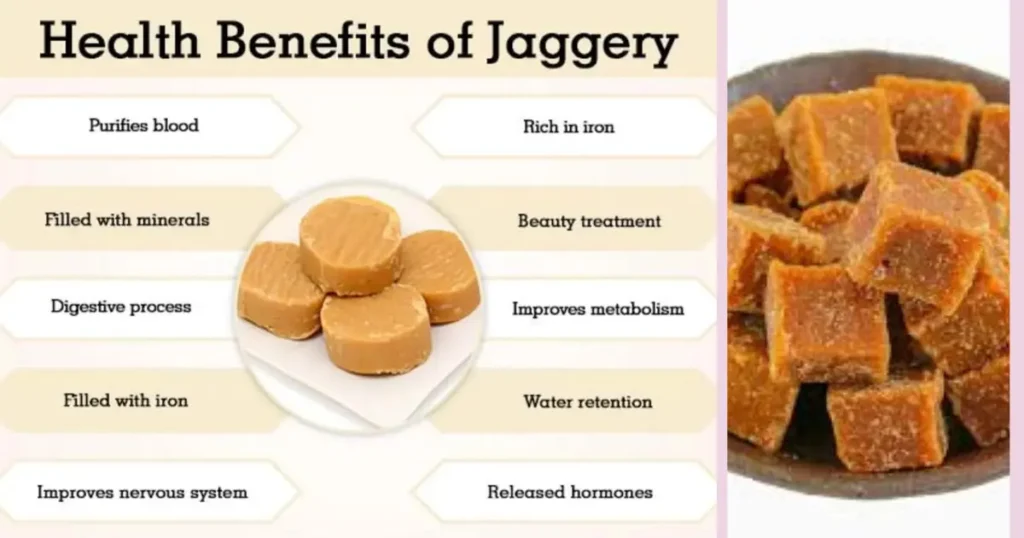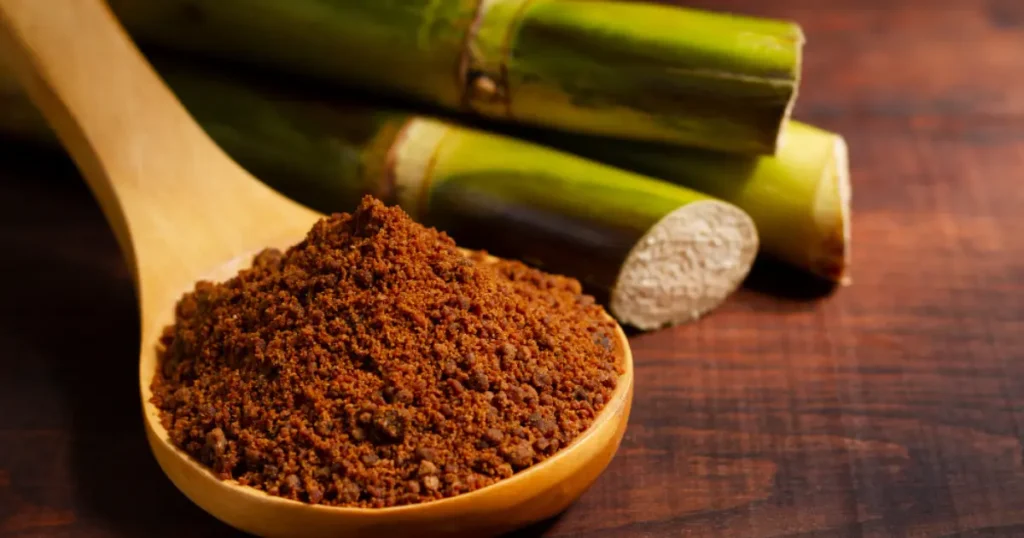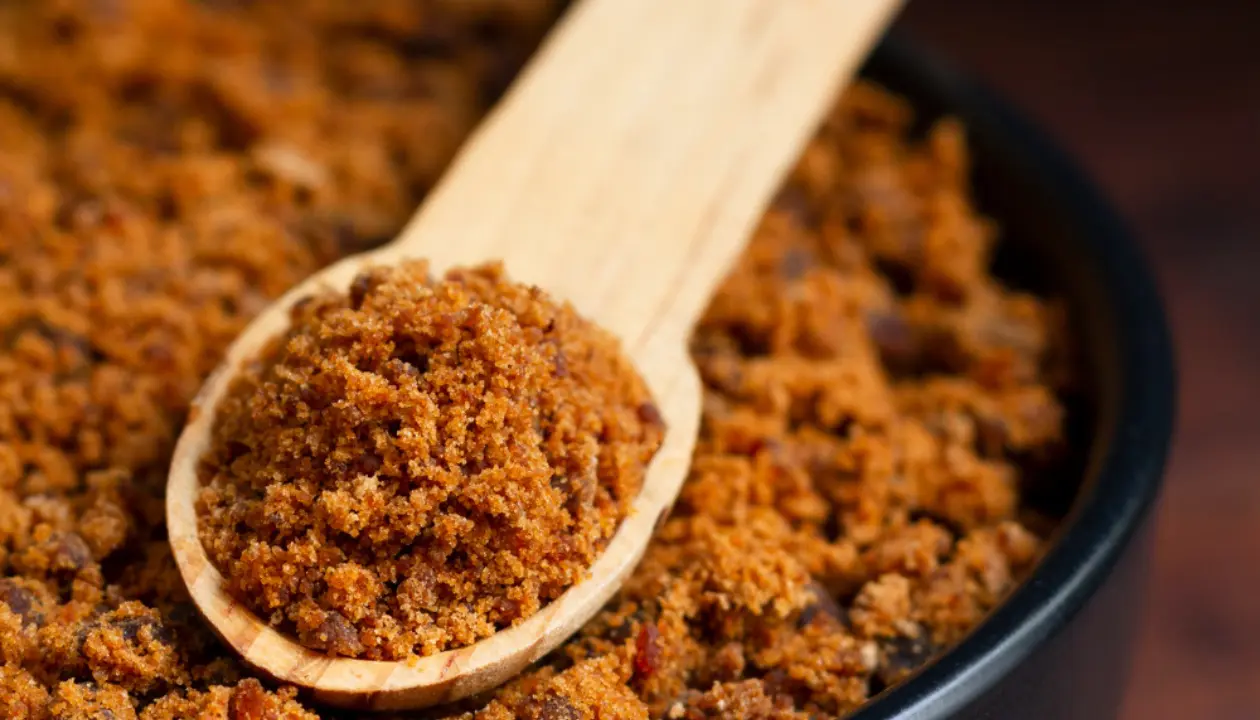Jaggery, a traditional sweetener hailing from India, is gaining global recognition for its unique flavor and potential health benefits. But is it truly a healthier alternative to table sugar? Let’s delve into the world of WellhealthOrganic.com Jaggery with Incredible Health Benefits and explore what makes it so special.
Jaggery, a traditional unrefined sugar, is a popular sweetener in many parts of Asia, Africa, and Latin America. Derived primarily from sugarcane juice or palm sap, jaggery is produced by boiling the raw juice until it solidifies. Unlike refined sugar, it retains trace minerals and vitamins, making it a healthier alternative. Its deep, caramel-like flavor enriches a variety of culinary dishes, from desserts to savory sauces. In addition to its culinary uses, jaggery is valued for its health benefits, including its potential to aid digestion, boost immunity, and provide a quick source of energy.
What is Jaggery?
Jaggery, also known as gur in Hindi, is an unrefined sugar product made of concentrated sugarcane juice. Unlike refined white sugar, jaggery retains essential minerals and vitamins during the minimal processing it undergoes. This difference in processing is what gives jaggery its characteristic color (ranging from light brown to dark brown) and rich taste with a hint of caramel.
Jaggery is a traditional, unrefined sweetener made from sugarcane juice or palm sap. Unlike refined white sugar, it retains natural minerals and vitamins, making it a healthier alternative. The production process involves boiling the juice or sap until it thickens and solidifies, then it is molded into blocks or granules. Known for its rich, caramel-like flavor and deep golden color, jaggery is widely used in South Asian and African cuisines for cooking and baking.
Value of Nutrient in Jaggery and Its Caloric Value
| Nutrient | Amount per 100g of Jaggery |
|---|---|
| Energy | 383 kcal |
| Carbohydrates | 98.0 g |
| Sugars | 85.0 g |
| Dietary Fiber | 0.4 g |
| Protein | 0.4 g |
| Fat | 0.1 g |
| Calcium | 80 mg |
| Iron | 11 mg |
| Magnesium | 70-90 mg |
| Phosphorus | 20-90 mg |
| Potassium | 1056 mg |
| Sodium | 19 mg |
| Zinc | 0.2 mg |
| Copper | 0.5 mg |
| Manganese | 0.2-0.5 mg |
| Vitamins | Trace amounts of Vitamin B |
Notes:
- Energy: The caloric value of jaggery primarily comes from its high carbohydrate content, especially sugars.
- Minerals: Jaggery is a good source of essential minerals like iron, magnesium, and potassium, which contribute to various bodily functions.
- Vitamins: Jaggery contains trace amounts of some B vitamins.
Incredible Health Benefits of Jaggery:

- Rich in Nutrients:

Jaggery, a traditional sweetener made from sugarcane juice or palm sap, is not only a natural sweetener but also a rich source of essential nutrients. It contains significant amounts of iron, magnesium, potassium, and other minerals vital for various bodily functions. Iron, for instance, is crucial for the production of hemoglobin, which carries oxygen to all parts of the body, while magnesium and potassium are essential for maintaining heart health, regulating blood pressure, and supporting muscle function.
- Boosts Immunity:
Jaggery possesses potent antioxidant properties, thanks to the presence of phytochemicals like flavonoids and phenolic compounds. These antioxidants help in neutralizing harmful free radicals in the body, thereby reducing oxidative stress and inflammation. By bolstering the immune system, jaggery aids in defending the body against infections, viruses, and other pathogens, thus promoting overall health and well-being.
- Digestive Aid:
Jaggery has long been valued for its digestive benefits. It contains enzymes that aid in the digestion and assimilation of food, facilitating smooth bowel movements and preventing digestive issues like constipation, bloating, and indigestion. Additionally, jaggery acts as a natural cleanser for the digestive tract, flushing out toxins and promoting the growth of beneficial gut bacteria, which are essential for maintaining gut health and optimizing nutrient absorption.
- Natural Energy Booster:

Unlike refined sugar, which provides a sudden spike in energy followed by a crash, jaggery acts as a sustained energy booster. It is a complex carbohydrate that is slowly metabolized by the body, leading to a steady release of glucose into the bloodstream. This steady energy supply helps in maintaining optimal energy levels throughout the day without causing fluctuations in blood sugar levels, making jaggery an excellent choice for sustained energy and endurance.
- Regulates Blood Sugar:
Despite its sweet taste, jaggery has a low glycemic index (GI), which means it raises blood sugar levels gradually and does not cause sudden spikes or crashes in blood glucose levels. This makes it a safer alternative to refined sugar for individuals with diabetes or those looking to manage their blood sugar levels. Moreover, jaggery contains minerals like chromium, which enhances insulin sensitivity and helps regulate blood sugar levels more effectively.
- Detoxifies the Body:
Jaggery is known for its detoxifying properties, which help in cleansing the body of toxins and impurities. It acts as a natural blood purifier, promoting the elimination of toxins through the liver, kidneys, and other detoxification pathways. Regular consumption of jaggery aids in improving liver function, enhancing the body’s natural detoxification processes, and promoting overall detoxification, leading to clearer skin, improved digestion, and better overall health.
- Relieves Respiratory Problems:
Jaggery is often used in traditional medicine as a remedy for respiratory ailments such as asthma, bronchitis, and cough. Its expectorant properties help in loosening and expelling mucus from the respiratory tract, relieving congestion, and facilitating easier breathing. Additionally, jaggery’s anti-inflammatory properties help in reducing inflammation in the airways, alleviating symptoms of respiratory conditions, and promoting respiratory health.
- Promotes Healthy Skin:
The antioxidants present in jaggery play a key role in promoting healthy and radiant skin. These antioxidants help in combating free radicals, which are molecules that can damage skin cells and accelerate aging. By neutralizing free radicals, jaggery protects the skin from oxidative stress and helps in maintaining its youthful appearance. Furthermore, the minerals found in jaggery, such as zinc and selenium, support collagen production and skin regeneration, contributing to smoother, firmer, and healthier-looking skin.
- Supports Weight Loss:
Despite being a sweetener, jaggery can be a valuable ally in weight loss efforts when consumed in moderation. Unlike refined sugar, which is empty calories devoid of nutrients, jaggery contains vitamins, minerals, and antioxidants that provide nutritional benefits without adding excessive calories. Furthermore, the fiber present in jaggery promotes satiety, helping to curb hunger and prevent overeating. By replacing refined sugar with jaggery in your diet and practicing portion control, you can enjoy sweet treats guilt-free while supporting your weight loss goals.
- Alleviates Menstrual Symptoms:
Jaggery is often recommended for women to alleviate menstrual symptoms such as menstrual cramps, mood swings, and fatigue. The iron content in jaggery helps in replenishing iron stores in the body, which can become depleted during menstruation due to blood loss. This helps in reducing fatigue and weakness commonly experienced during menstruation. Additionally, jaggery’s warming properties help in relieving menstrual cramps and discomfort by promoting better blood circulation and relaxing the uterine muscles. Consuming jaggery during menstruation can thus help in easing menstrual symptoms and promoting overall menstrual health.
It’s Important to Note:
- Jaggery Still Contains Sugar: While jaggery offers some nutrients, it’s mainly sucrose (sugar). People with diabetes or those watching their sugar intake should consume it moderately.
- Limited Research: More scientific studies are needed to fully validate the health claims associated with jaggery consumption.
Incorporating Jaggery into Your Diet:
Jaggery can be enjoyed in various ways:
- Sweetener: Add grated jaggery to porridge, smoothies, or baked goods for a natural sweetness.
- Detox Drink: Dissolve a small piece of jaggery in warm water with lemon for a cleansing beverage.
- Traditional Treats: Jaggery features prominently in many Indian sweets like chikki and laddus.
Conclusion:
Jaggery presents a fascinating option for those seeking a more natural sweetener. While not a magical health cure, its potential benefits and unique flavor profile make it a worthy addition to a balanced diet. Remember, moderation is key!
When it comes to health benefits of jaggery doesn’t disappoint. Rich in essential minerals like iron, magnesium, and potassium, it offers a more nutrient-dense alternative to refined sugar. Iron, in particular, plays a crucial role in preventing anemia and maintaining good energy levels.
Disclaimer
The information provided on WellhealthOrganic.com regarding the health benefits of jaggery is for educational and informational purposes only. It is not intended to be a substitute for professional medical advice, diagnosis, or treatment.
FAQs
1. Is jaggery healthier than sugar?
Yes, jaggery is considered healthier than refined sugar as it undergoes minimal processing and retains more nutrients. It also has a lower glycemic index, which means it causes a slower and steadier rise in blood sugar levels compared to white sugar.
2. Can jaggery be consumed by diabetics?
While jaggery is a natural sweetener, it still contains calories and carbohydrates, so it should be consumed in moderation by individuals with diabetes. It’s best to consult with a healthcare provider to determine the appropriate amount of jaggery for your diet.
3. How can I incorporate jaggery into my diet?
Jaggery can be used as a sweetener in beverages like tea and coffee or as an ingredient in cooking and baking. It adds a rich flavor to desserts, snacks, and savory dishes. You can also dissolve it in warm water or milk for a soothing drink.
4. Is organic jaggery better than regular jaggery?
Organic jaggery is produced without the use of synthetic pesticides or chemicals, making it a healthier option for those concerned about their exposure to harmful substances. However, both organic and regular jaggery offer similar health benefits, so the choice ultimately depends on personal preference.



